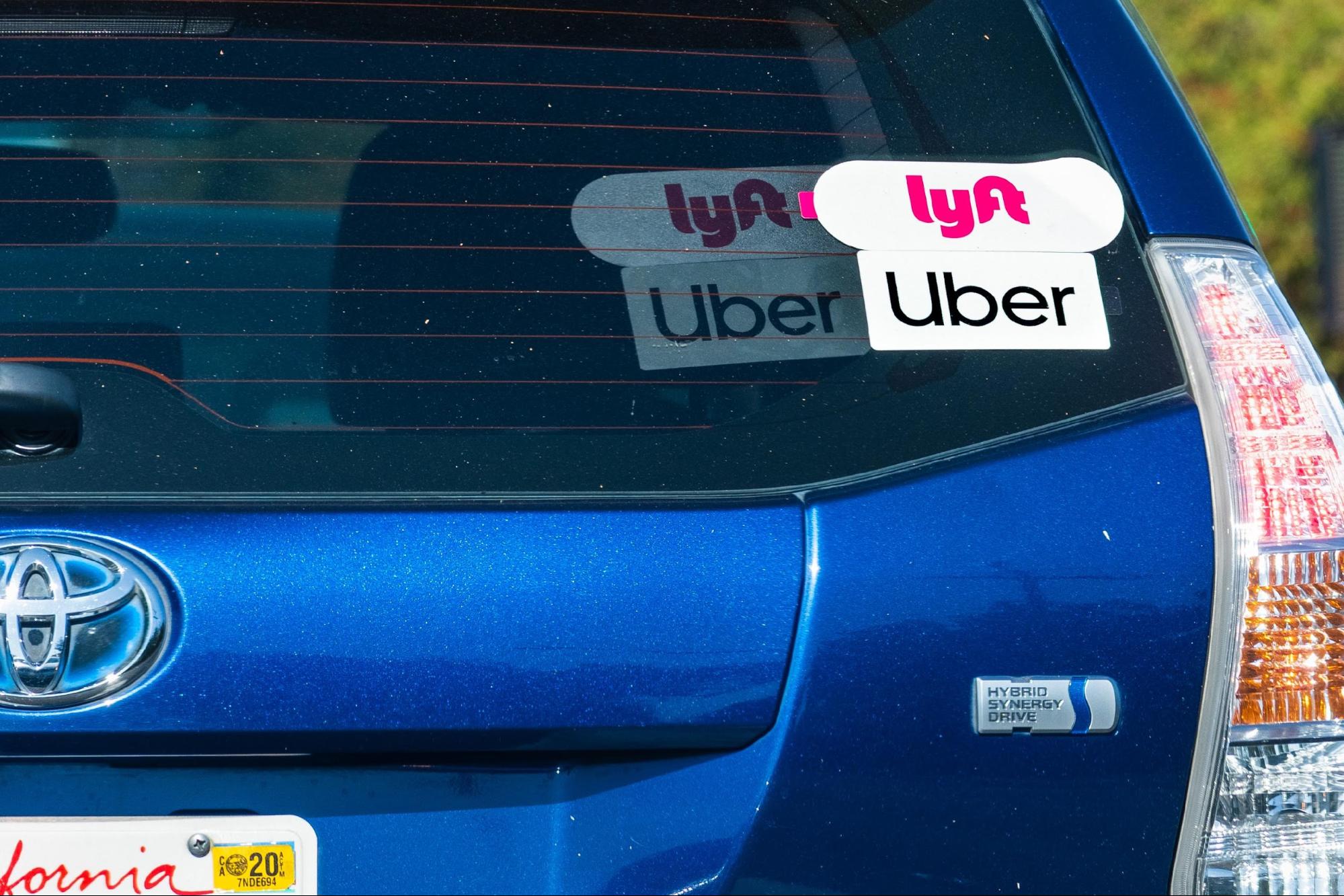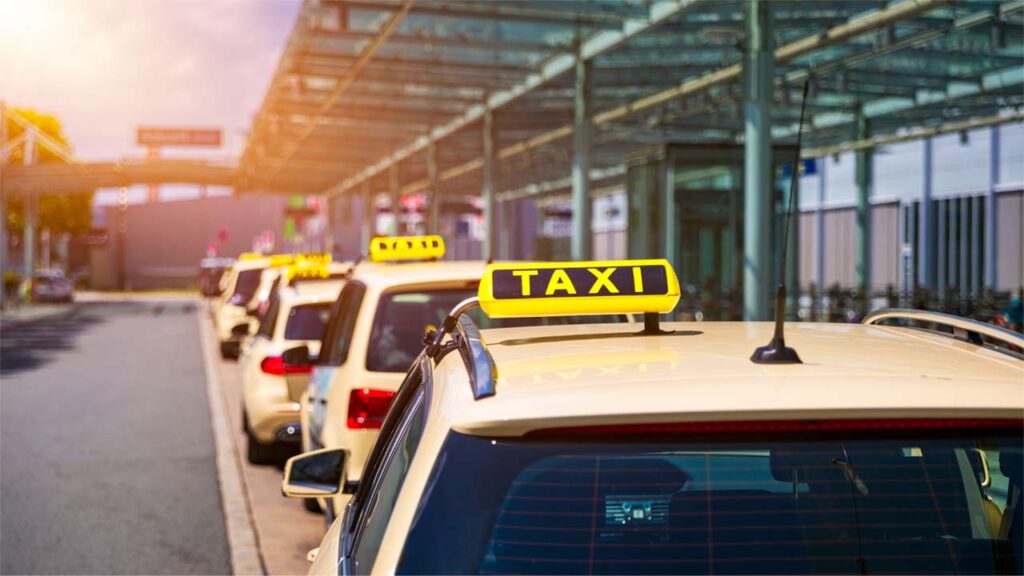
California Car Dealers Selling Former Uber, Lyft, or Taxi Cars Without Telling You? Here’s What You Must Know
“They Didn’t Tell Me It Was an Uber Car”
“Marcus” thought he had scored a deal when he bought a clean-looking SUV from a dealer in San Jose. The mileage looked reasonable. The price seemed fair. The salesperson reassured him the car was “lightly driven” by the previous owner. But just a few weeks later, a friend helped him run a full vehicle history report—and the truth hit hard. His “gently used” SUV had racked up over 150,000 miles while serving as a full-time Uber vehicle. It had been on the road daily, transporting passengers non-stop for nearly four years. Marcus felt blindsided. No one at the dealership had mentioned anything about its former life.
This scenario is becoming all too common in California. Cars that have spent years as taxis, Uber rides, Lyft vehicles, or limos are finding their way onto dealership lots—often without proper disclosure. And many consumers, like Marcus, are stuck with overworked, overpriced cars that were never what they seemed. This article explains the risks, your legal rights, and what you can do if you’ve unknowingly purchased one of these commercial vehicles.
What Is a Rideshare or Taxi Vehicle?
In simple terms, a rideshare or taxi vehicle is any car that has been used to transport passengers for pay. This includes traditional taxis, limousines, and vehicles used for services like Uber, Lyft, and even lesser-known platforms like Via or Wingz. While these vehicles can look like any other used car, what sets them apart is how intensively they were used.
The moment a car becomes part of a commercial transportation fleet, it enters a different category of wear, tear, and usage. These cars may drive triple the mileage of a personal vehicle in a single year. They’re subject to constant stop-and-go traffic, heavy braking, frequent passenger entry and exit, and often only receive the bare minimum maintenance required to stay road-legal. California law treats these vehicles differently—and so should you.
How Rideshare and Taxi Vehicles Are Used
Rideshare and taxi vehicles live a very different life compared to privately owned personal cars. While a typical personal car might be driven 12,000 to 15,000 miles per year, a full-time Uber or Lyft vehicle can easily rack up over 50,000 to 70,000 miles annually. These cars are on the road for hours each day, often during peak traffic hours, and they stop and start hundreds of times in a single shift.
Drivers in the gig economy rely on these vehicles to earn income. That means minimal downtime, constant usage, and only essential repairs to keep the car running. Brake pads wear down faster, tires are replaced more frequently, and interiors take a beating from passenger turnover. Food spills, luggage scrapes, and backseat wear are common. Even with regular cleaning, the vehicle ages much faster than a typical privately owned car.
Mechanically, these cars may look fine to the untrained eye. But their transmission, suspension, steering, and electrical systems often suffer from extended strain. And while some drivers perform diligent maintenance, others defer costly repairs just to stay on the road. That’s the reality of the rideshare grind.
How the DMV Brands or Tracks Commercial Use
The California DMV does not automatically brand a vehicle’s title as “commercial” or “rideshare” after it’s been used as an Uber, Lyft, or taxi. Unlike salvage or rebuilt titles, there’s no distinct visual flag on the paper title to alert buyers to the vehicle’s previous commercial life. However, that doesn’t mean the history is invisible.
Dealers and consumers can uncover commercial use through vehicle history reports, such as those from Carfax, AutoCheck, or NMVTIS. These reports may list prior registration types, mileage records, service entries, and commercial fleet designations. Some rideshare companies also provide documentation upon request.
Dealers have a legal and ethical obligation to review these records. If they find that the car was a commercial vehicle—and they don’t disclose it—they’re not just being dishonest. They may be breaking the law. California Vehicle Code and consumer protection statutes require dealers to tell the truth about a car’s known history. Omitting known commercial use is material misrepresentation.

Mechanical Risks of Ex-Taxi or Uber Vehicles
Vehicles used for commercial purposes endure significantly more stress than personal-use cars. Constant driving across varied terrains, frequent braking, and round-the-clock use all contribute to faster wear and tear. The suspension system, in particular, may be worn out from carrying heavy loads and enduring rough city streets. Similarly, the transmission may have experienced thousands of gear shifts more than a typical car.
You also have to worry about deferred maintenance. Many rideshare drivers are independent contractors working with limited budgets. That means oil changes might be delayed, filters ignored, and mechanical issues patched instead of properly repaired. Cosmetic fixes, like replacing seat covers or cleaning carpets, may cover up the deeper mechanical fatigue that makes the vehicle unreliable.
Buying one of these vehicles without knowing its history exposes you to long-term costs. Transmission failure, suspension collapse, or steering issues can surface soon after purchase. If the car was represented as gently used but turns out to be a rideshare workhorse, you’ve been misled—and your safety and finances are on the line.
Safety Risks in Commercial Vehicles
The constant, high-intensity use of rideshare and taxi vehicles doesn’t just wear out the engine and brakes—it can also compromise your safety. Key components such as airbags, seat belts, and crumple zones may have degraded from overuse or may have been replaced with substandard parts after minor accidents. In many cases, these repairs aren’t disclosed to buyers.
Worn-out suspension can make the vehicle unstable, especially at high speeds. Overused brakes may fail when you need them most. Some ex-taxi vehicles may have undergone structural repairs from fender benders, but without proper parts or professional installation. In high-mileage commercial vehicles, even the steering column or fuel lines can pose hazards.
Unfortunately, many of these safety risks are not immediately obvious. A test drive around the block may not reveal the long-term risks you’ll face as an owner. That’s why buying one of these cars without knowing its history is so dangerous—it puts you and your passengers at risk every time you drive.
Overpriced and Over-Market Valuation Problems
A car that has been used as a taxi or rideshare vehicle should never be priced the same as a vehicle driven privately. Unfortunately, some dealers clean up these cars cosmetically, roll back any visible wear, and list them at full market value. That means you could be paying $20,000 for a vehicle worth half that due to hidden wear and reduced lifespan.
Valuation issues go beyond the sticker price. Insurance companies may limit your coverage options or offer less if you file a claim, citing the vehicle’s commercial history. And when you try to sell it, buyers and dealers alike will offer significantly less once they learn about its background.
Not disclosing the commercial use history not only misleads the buyer—it also warps the entire financial transaction. You’re paying too much for too little, and that’s a form of fraud.
Trouble Reselling a Former Taxi or Lyft Vehicle
Even if the car looks good and runs well, its history follows it forever. If you later try to sell or trade in a former rideshare vehicle, you’ll face steep depreciation. Buyers search Carfax or AutoCheck reports. Once they see a commercial use tag or high mileage pattern, many will walk away.
Trade-in offers from dealers will be lower, too—sometimes thousands of dollars less. That’s because dealerships know how hard it is to resell a car with that kind of wear and baggage. In some cases, buyers have had to discount their vehicle by 30% or more just to get it off their hands.
It’s not fair to be put in this position—especially when you were never told the truth to begin with.
California Law: Dealers Must Disclose Prior Commercial Use
Under California law, dealers are required to disclose any known material facts about a vehicle, including whether it was previously used as a taxi, Uber, Lyft, or other commercial rideshare service. This disclosure must be clear, written, and made before the point of sale. Failing to do so can amount to auto fraud, a serious legal violation.
According to the California Vehicle Code, it is unlawful for a dealer to misrepresent the condition or history of a vehicle. That includes failing to disclose a prior commercial use. Additionally, the Consumer Legal Remedies Act (CLRA) and Business and Professions Code give consumers the right to sue for deceptive business practices.
In essence, if a dealer knew—or reasonably should have known—that a vehicle had been used for commercial purposes and failed to tell you, they may be liable for damages. Dealers have access to vehicle history reports and prior title records, so claiming ignorance doesn’t hold up in most cases.

What Are Your Rights if You Bought One Without Knowing?
If you bought a former Uber, Lyft, or taxi vehicle without disclosure, you are not powerless. California gives consumers strong rights in these situations. First, you may be entitled to rescission, which allows you to return the car and get your money back. Second, you may be entitled to monetary damages for the difference in value, repair costs, or diminished resale price.
If the dealer intentionally misled you, you may also recover attorney’s fees and court costs, which makes it easier to pursue a case even if you’re not in a financial position to pay upfront. Many firms, like ours, offer free case reviews and take cases on a contingency basis for this reason.
It’s also important to act quickly. There are time limits (statutes of limitations) for bringing legal claims, so don’t wait too long to take action. An auto fraud attorney can assess your case and help you understand the best course of action.
The Laws That Protect California Car Buyers
California law has some of the strongest consumer protection statutes in the country. These include:
- California Vehicle Code – Prohibits misrepresentation by dealers.
- The Consumer Legal Remedies Act (CLRA) – Allows consumers to sue for unfair business practices.
- Business and Professions Code – Addresses unlawful, unfair, and fraudulent business acts.
These laws are designed to level the playing field. Dealers have more knowledge and power in a transaction—but the law ensures consumers have a right to honesty, fairness, and remedies when wronged.
Legal Remedies Available to You
If you’ve been the victim of undisclosed commercial vehicle fraud, you may be entitled to:
- Full refund or cancellation of the contract (rescission)
- Compensation for repair costs and loss of value
- Legal fees, court costs, and potential punitive damages
The legal system recognizes how damaging this kind of fraud can be, especially when the car becomes unreliable or unsellable. An experienced auto fraud attorney can help you gather documentation, communicate with the dealer, and file a lawsuit if necessary.
We Help Victims of This Type of Dealer Fraud
At our firm, the Law Office of Paul Mankin, we help Californians who unknowingly purchased former Uber or Lyft vehicles without proper disclosure. A common occurrence is when a consumer thought they bought a well-maintained sedan, only to find out it had been logged in over 1,000 rideshare trips. In this type of situation, the consumer should have a good case and is likely to receive a full refund and legal costs.
We understand how frustrating and financially draining these situations can be. That’s why we fight aggressively to hold dishonest dealers accountable. If this happened to you, we’re ready to help! Don’t hesitate to contact The Law Office of Paul Mankin, APC at (800) 219-3577.
Why This Is a Common Question Online
Thousands of Californians search for help each year after buying a used car that turns out to have a hidden history. Questions like “how to tell if my car was an Uber” or “can a dealer sell an ex-taxi without telling me?” flood search engines. That’s because this practice is alarmingly common, and most people don’t know it’s illegal.
This article exists to help bridge that knowledge gap. You’re not alone—and if this happened to you, there’s a path to justice.
How to Check If a Car Was a Former Rideshare Vehicle
Before buying any used vehicle, always run a Carfax or AutoCheck report. Look for telltale signs like high mileage for the year, frequent service entries, or past registration as a commercial vehicle. Ask the dealer directly and insist on a written statement confirming the car’s history.
You can also check with the National Motor Vehicle Title Information System (NMVTIS), which includes salvage, title, and insurance loss records. Some Uber and Lyft drivers also register their vehicles through fleet management services, which may show up on history reports.
Being proactive can save you thousands—and protect your safety and peace of mind.
Conclusion: Know Before You Buy—Or Fight Back If You Didn’t
If a California car dealer sold you a vehicle that was previously used as a taxi, Uber, or Lyft without telling you, you have rights. The law is on your side, and remedies are available. Whether you’re trying to undo the purchase, recover financial losses, or hold the dealer accountable, don’t face this alone.
Reach out to a trusted auto fraud attorney and take the first step toward justice. Engaging a consumer protection lawyer not only increases the chances of success, offering peace of mind and confidence in the legal process. You deserve transparency—and you deserve a vehicle that matches what you were promised.
Latest Posts
Common Red Flags of Dealer Auto Fraud When Buying a Used Car in California
Buying a used car can be exciting—but it can also be risky if you’re not aware of the common warning signs to watch out for. Unfortunately, some car...
California Dealers Selling Branded Title Vehicles Without Telling You? Here’s What You Must Know
"They Never Told Me the Car Had a Branded Title" A California consumer thought she had found the perfect used SUV at a dealership in Bakersfield. It was...
